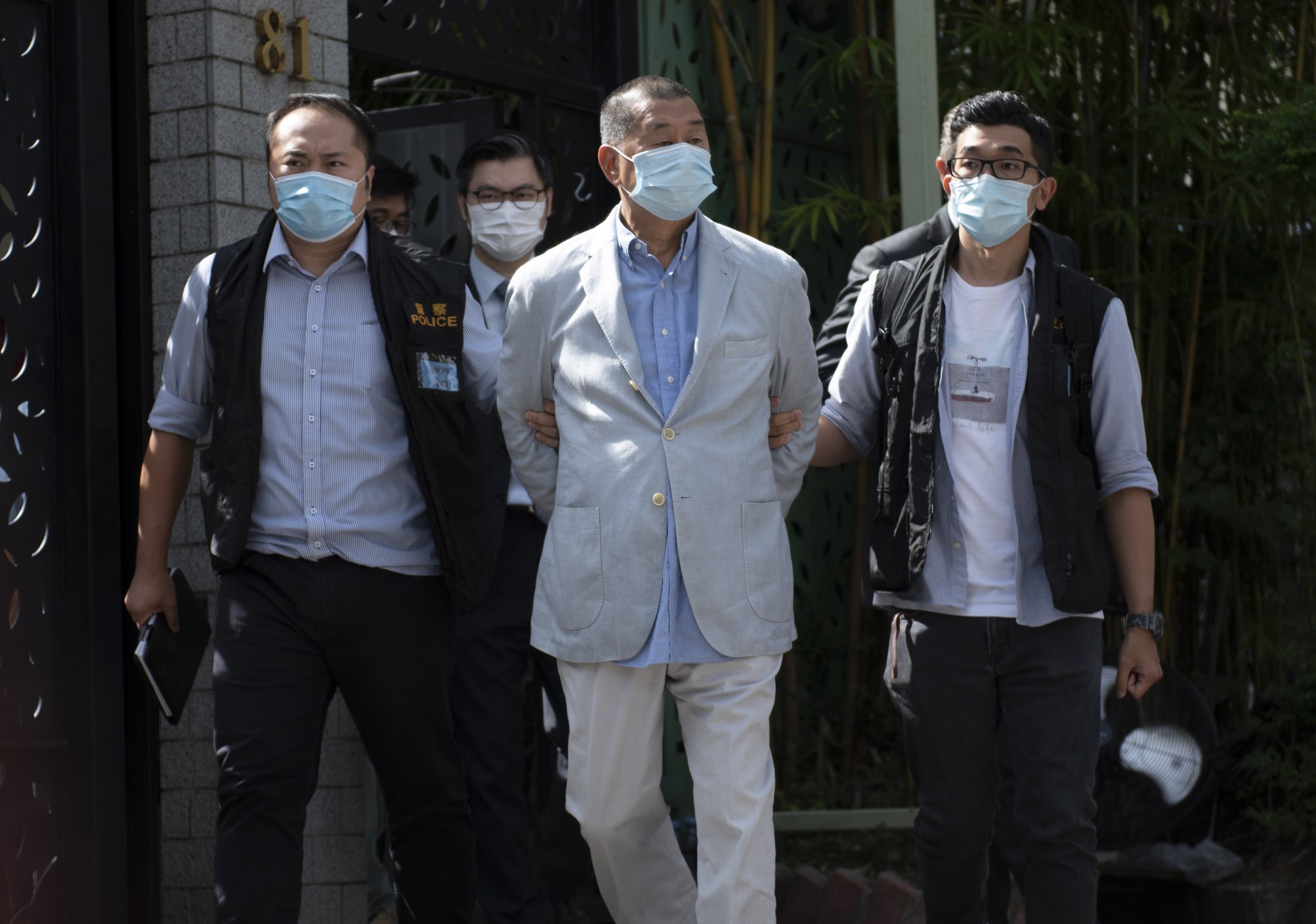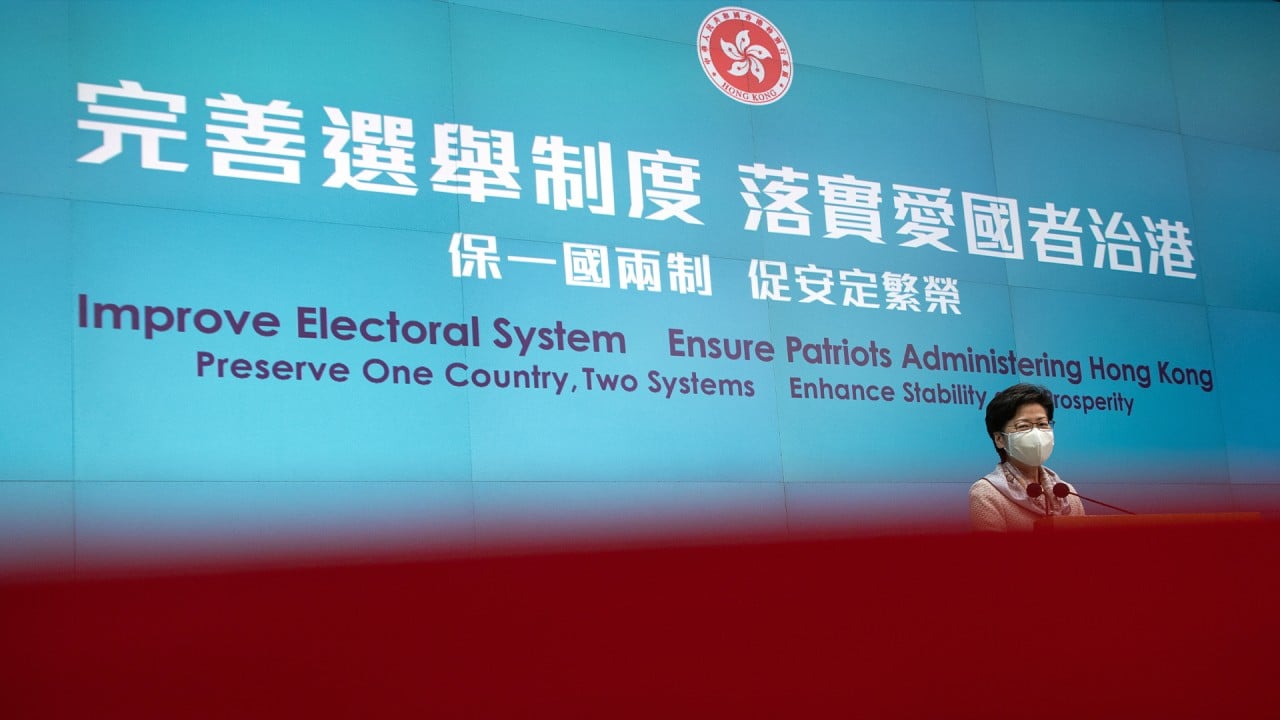
Hong Kong does not warrant special US status since Beijing has slashed its autonomy, Antony Blinken reaffirms
- State Department releases annual Hong Kong Policy Act Report, determining whether the city is autonomous enough to justify preferential economic relations
- US will ‘work with Congress and our allies and partners around the world to stand with people in Hong Kong against the PRC’s egregious policies and actions’
Hong Kong does not warrant preferential treatment under US law owing to the erosion of its autonomy at the hands of Beijing, the Biden administration said on Wednesday, upholding a Trump-era determination made last year.
“Over the past year, the People’s Republic of China (PRC) has continued to dismantle Hong Kong’s high degree of autonomy, in violation of its obligations under the Sino-British Joint Declaration and Hong Kong’s Basic Law,” US Secretary of State Antony Blinken said.
He made the remarks while announcing the State Department’s Hong Kong Policy Act Report, sent annually to Congress, which includes a determination as to whether the city is sufficiently autonomous from mainland China to justify preferential economic relations.
Last year, for the first time since Hong Kong’s handover from British to Chinese rule in 1997, the Trump administration decertified Hong Kong’s special status and soon began peeling away its privileges, including an extradition treaty and export controls on dual-use technology.
Since then, Beijing has imposed a broadly defined national security law and, more recently, the prospect of a sweeping overhaul of Hong Kong’s electoral system.
The national security law had “severely undermined” rights and freedoms in Hong Kong, said Blinken, who listed a catalogue of alleged violations of the city’s autonomy by Beijing over the past year. They included political persecution of opposition politicians and activists, the postponement of legislative council elections, pressure on the judiciary, and prohibitions of public demonstrations.
When asked whether the administration planned any updates to its Hong Kong policy based on the determination, a State Department representative declined to “preview or comment on potential sanctions or other actions that we may take”.
Neither the Hong Kong government nor the Chinese embassy in Washington immediately responded to requests for comment.
Wednesday’s report highlighted the 99 arrests made under the national security law as of February, all but one of which were for nonviolent behaviour. Among them were the arrests of 55 candidates and political organisers who took part in pan-democratic primary elections last year; of those, 47 were charged with subversion in February.
The arrests were part of “repeated actions to restrict the ability of Hong Kong voters to elect their representatives” over the past year, said the report.
It also suggested that Hong Kong Chief Executive Carrie Lam Cheng Yuet-ngor, with Beijing’s backing, had falsely used the pretext of public health concerns to postpone the Legislative Council elections in September “despite significantly fewer per capita cases of Covid-19 than in other nations and cities that have conducted elections safely during the pandemic”.
Hong Kong leader delays legislative elections, citing pandemic dangers
Covering the period from last June through February, the report did not include an assessment of a measure unanimously approved by Beijing’s top legislative body this week that will overhaul Hong Kong’s electoral system.
The move, described by officials as a way to ensure Hong Kong is ruled by “patriots”, will slash the number of directly elected seats in Hong Kong’s legislative council from one-half to around one-fifth, and pack the committee that elects the city’s leader with pro-Beijing members.
“True patriotism means preserving Hong Kong’s high degree of autonomy and respecting human rights, freedoms, and political pluralism,” State Department spokesman Ned Price shot back on Twitter on Wednesday.

Beyond political developments, the State Department report highlighted threats to Hong Kong’s freedom of the press, citing arrests and “harassment” of journalists, a rise in self-censorship because of fears of reprisal, and denials of visas or renewals to foreign journalists.
Beijing has also waged a war of disinformation in Hong Kong using its own media apparatus, the report said, describing a campaign to paint “the United States and other foreign countries as fomenters of unrest in Hong Kong and deflecting attention away from the demands of Hong Kong people”.
The report to Congress comes as US lawmakers remain overwhelmingly united around the issue of Hong Kong, having passed two pieces of legislation in recent years that paved the way for sanctions against dozens of PRC and Hong Kong officials over the erosion of autonomy in the city.
“I am committed to continuing to work with Congress and our allies and partners around the world to stand with people in Hong Kong against the PRC’s egregious policies and actions,” Blinken said.


